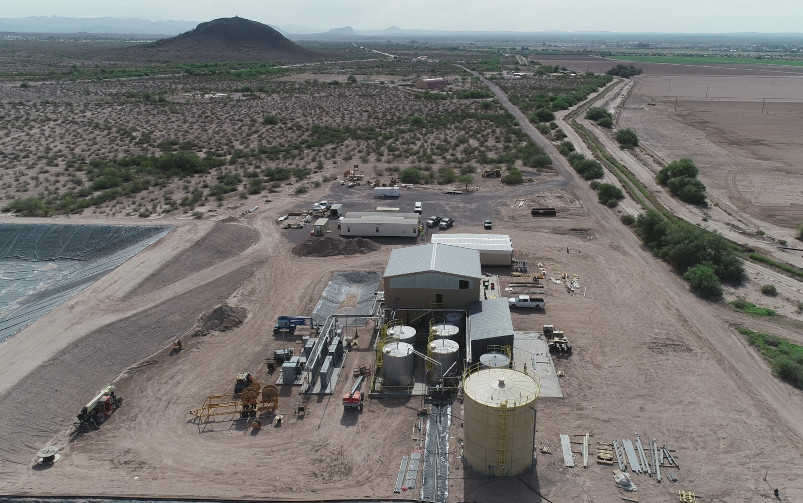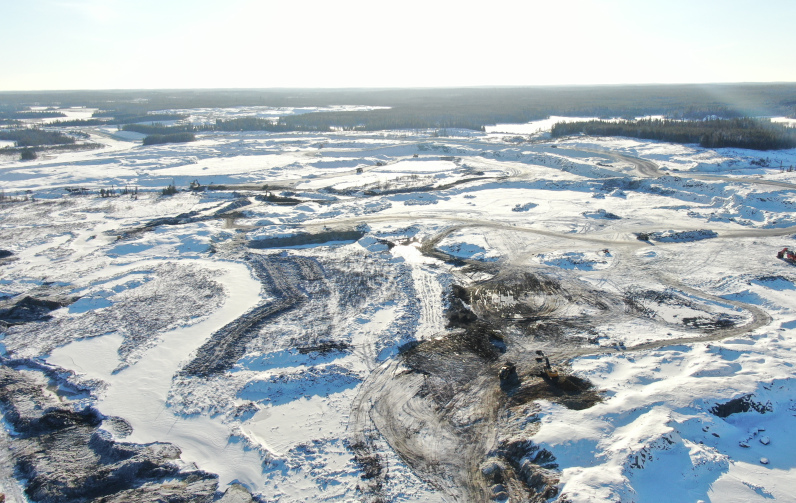Newmont CEO Tom Palmer kicked off day two of the PDAC 2022 convention with his keynote speech.
With the pressing need for electric vehicles and green energy sources, much fuss has been made about mining operations that supply the critical minerals necessary for a low-carbon future. Gold, however, is not widely considered as one of those critical minerals, leading to questions about what the role of gold mining companies will be in the future.
This is a conundrum that occupies Tom Palmer in his role as CEO of Newmont, the world’s largest gold mining company. In his keynote address at day two of the PDAC 2022 convention in Toronto, Palmer reflected on the century of history that his company has experienced and opined on what the next 100 years might bring.
While society has certainly changed significantly since Newmont was incorporated in 1921, Palmer said that he was “particularly struck” by the challenges that the world is facing at present and how businesses have been called upon to take action.
“The integrated global economic order that underpins much of the rule-based world post-World War Two era has fundamentally been challenged over the last five years, resulting in heightened global uncertainty and volatility,” Palmer said. “Whether that is a result of the COVID-19 pandemic, the continued emergence of China as a global power, Russia’s invasion of Ukraine [or] of the chronic societal challenges related to systemic racism and inequality, governments and businesses are being challenged to respond.”
A major part of that response, according to Palmer, is that the old notion that mining companies should “seek to do no harm” in the jurisdictions in which they operate is no longer adequate. Rather, miners should instead look to contribute positively to the societies that are impacted by their operations and create partnerships with local communities, which could involve sustainable benefits or even equity ownership in the operation. This is in addition to increasing focus on environmental sustainability and good governance, translating to strong ESG performance.
Palmer stated clearly during his address that climate change is an existential threat to humanity, and that companies will have an increasing role to play in helping to mitigate its effects, with those unwilling or unable to produce in an environmentally responsible manner being left behind. For a resource like gold, however, that is mostly mined for its value rather than its use in batteries and other technologies, will mining companies need to go even further?
Related: Gold Fields to buy Yamana Gold in US$6.7 billion deal
“Our view is that, over time, we’ll see commodities increasingly being priced on how they are produced, rather than the commodity itself. It is clearly asserted that there is no company whose business model will not be transformed by the transition to a low-carbon economy,” Palmer said. “At the same time, minerals deemed critical for a transition to a low-carbon economy have led to questions over the role of other minerals, including gold, that have major environmental footprints that are not intrinsically linked to the low-carbon energy future.”
For Palmer, the answer lies in four “key differentiators” that Newmont is able to provide with its operations: its commitment to ESG practices, its portfolio of assets that are large in both scale and mine life, the experience of the company’s leaders and, finally, its ability to generate a strong free cash flow.
The requirements for mining companies to operate responsibly have changed significantly over the last century. New requirements for reconciliation with local communities, building a working culture free of discrimination and harassment, and more stringent standards on tailings storage facilities are all examples mentioned by Palmer of how companies are being required to change. Doing so might not be in reach for everybody, however, and those that cannot might not survive.
“There are only a few gold mining companies who have the capacity to deliver on all these elements – size, scale, mine life and access to capital – clearly making the case for further partnerships and consolidation within the gold mining industry. Those who do not understand these fundamentals are due to be left behind,” Palmer said.
If the past few years have taught us anything, however, it is that nothing is promised and anything is possible. For Palmer, having the ability to rely on the century of experience at Newmont is critical to its future.
“I do not know what the future holds,” Palmer said. “But I firmly believe that Newmont benefits from our 101 years of history and experience, which can teach us a great deal around how to innovate and transform to address the needs of the future.”




